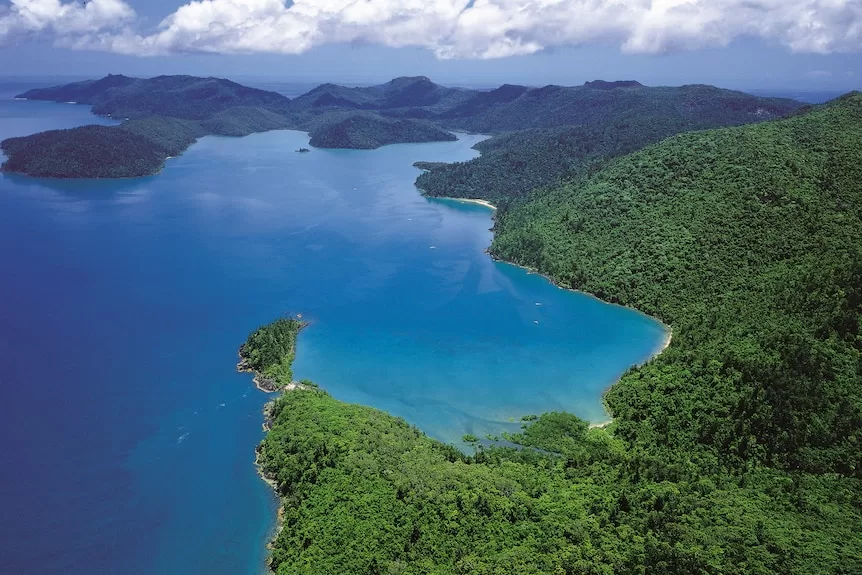Environmental advocates are calling for charter boat operators to be more responsible after a skipper allowed a boat to crash near the Great Barrier Reef.
Key points:
- The man was convicted of maritime offences after letting “unqualified” people take control of the boat
- The Australian Marine Conservation Society says such conduct can have devastating reef impacts
- But a Whitsundays charter boat association says these types of incidents are rare
Last week Stephen Aldred, 72, was convicted and fined $15,000 after being charged with multiple maritime offences.
The Proserpine Magistrates Court heard he took 13 passengers on a private charter boat, Waltzing Matilda, for a three-day 21st birthday celebration in November 2022.
In that time, he allowed “unqualified” and “inexperienced” passengers to assume control of the vessel for lengthy periods.
During the celebrations, the boat became grounded near Hook Passage, which runs between several of the Whitsunday Islands and is renowned for its vast array of marine life.
Aldred was charged with operating in breach of the vessel’s certificate of operation, assuming the role of master without the proper qualifications, and for failing to take reasonable care for the safety of persons affected by his acts or omissions and being reckless in doing so.
Australian Maritime Safety Authority manager of enforcement and inspector support David Marsh said he hoped the conviction would provide a timely reminder to boat operators that reckless behaviour would be punished.
“If you’re a domestic commercial vessel operator, there is nothing more important than safety,” he said.
Impacts to the reef
Simon Miller from the Australian Marine Conservation Society (AMCS) said this type of reckless behaviour on the water was not just dangerous for passengers, it could have had devastating environmental impacts.
“From an environmental perspective, one of the biggest issues that we see from irresponsible boating practices is anchor damage to corals or to seagrass beds, or running aground on a reef,” he said.
“With climate change causing more frequent mass bleaching events, cyclones and flooding that we’ve seen recently in North Queensland, we certainly don’t want to see further coral or seagrass loss from anchor damage or from boats running aground.”
Mr Miller is a Great Barrier Reef fisheries expert at the AMCS.
He said irresponsible boating practices could also pose a risk to sea animals.
“One of the other major issues … is not just the impacts on the coral reef themselves, but also the impacts on some of the threatened species,” he said.
“Boat strikes are one of the key threats to turtles and dugongs on the Great Barrier Reef.”
‘Culture of caring for the reef’
Whitsunday Charter Boat Industry Association chief executive Adrian Bram said these types of incidents painted the industry in a negative light.
But he said most operators were environmentally conscious.
“The asset of our industry is the Great Barrier Reef, and the Whitsunday Islands,” he said.
“There’s a culture of caring for the reef, caring for the islands that goes right through the industry,” Mr Bram said.
Any activity that put passengers at risk was unacceptable, he said.
“Everything in this world today is about safety, and making sure that we take care of our passengers, take care of our crew, and take care of the magnificent natural assets,” Mr Bram said.
Mr Bram said such incidents were a rare occurrence, with more than 28,000 people heading out on the water per week around the Whitsundays, onboard crewed charter yachts, day tours and ferries.
“There are occasions in every industry, in everything that people do, where things go wrong,” he said.
“But it shouldn’t reflect upon all the people out there who are doing the right thing.”
Find more local news
Browse for your location and find more local ABC News and information
